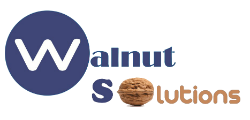Discover the on-page SEO secrets that top-ranking websites use to outrank their competitors.
1. Start with keyword research.
Keyword research is the foundation of on-page SEO. Without it, you risk optimizing your content for the wrong terms
2. Optimize your title tags.
Your title tag is one of the most important on-page SEO elements. It tells search engines what your page is about
3. Use keyword-rich descriptions.
Just like your title tag, your Meta description is an important on-page SEO element. It gives searchers information about your page
4. Make sure your content is relevant.
Relevance is a key when it comes to on-page SEO. Your content must be relevant to the keywords you’re targeting
5. Use keyword-rich H1, H2, and H3 tags.
H1, H2, and H3 tags are important elements. They help improve the readability of your content and give search engines more information about your page
6. Optimize your images.
Images are an important part of on-page SEO. By optimizing your images, you can increase your chances of ranking in Google Image Search
7. Use internal links.
Internal links are links that point to other pages on your website. They help search engines crawlers discover new pages and understand the structure of your site
8. Use external links.
External links are links that point to other websites. They help improve the authority of your website and can provide valuable context for your content
9. Optimize your website for mobile devices.
Mobile optimization is essential for on-page SEO in 2018. With more than half of all web traffic now coming from mobile devices, it’s important to make sure your website is optimized for them
10. Use social signals.
Social signals are an important part of on-page SEO. They help search engines understand the popularity and authority of your website
11. Monitor your click-through rate.
Your click-through rate (CTR) is a measure of how often people click on your links in the search results. A high CTR means that people are finding your content relevant and useful
12. Monitor your bounce rate.
Your bounce rate is a measure of how often people leave your website after viewing only one page. A high bounce rate means that people are not finding what they’re looking for on your website
13. Make sure your website is fast.
Website speed is an important ranking factor for search engines. A fast website not only provides a better user experience, but it also improves your chances of ranking in the search results
14. Use Google Search Console.
Google Search Console is a free tool that helps you monitor and optimize your website for the search engine
15. Stay up to date with Google’s algorithm changes.
Google’s algorithm is constantly changing, so it’s important to stay up to date with the latest changes. You can do this by subscribing to the Google Webmaster Central Blog or following SEO news on Twitter
These are just some of the many SEO secrets that top-ranking websites use to outrank their competitors. By following these tips, you can improve your own website’s ranking in the search results.
FAQs:
1. What is on-page SEO?
On-page SEO is the process of optimizing your website for the search engines. It includes optimizing your content, title tags, Meta descriptions, images, and more.
2. What are the benefits of on-page SEO?
The benefits of on-page include improved ranking in the search results, increased traffic to your website, and a better user experience.
3. How can I improve my on-page SEO?
There are many ways to improve your on-page SEO. Some of the most important things you can do include keyword research, optimizing your title tags and Meta descriptions, and making sure your content is relevant to the keywords you’re targeting.
Conclusion:
On-page SEO is a critical component of any successful SEO strategy. By optimizing your website for the search engines, you can improve your ranking in the search results and get more traffic to your site. To optimize your website, start by doing keyword research to find the right keywords to target. Then, optimize your title tags and Meta descriptions to make sure they’re relevant to those keywords. Finally, make sure your content is high-quality and relevant to the keywords you’re targeting. By following these tips, you can improve your on-page SEO and get more traffic to your website.
